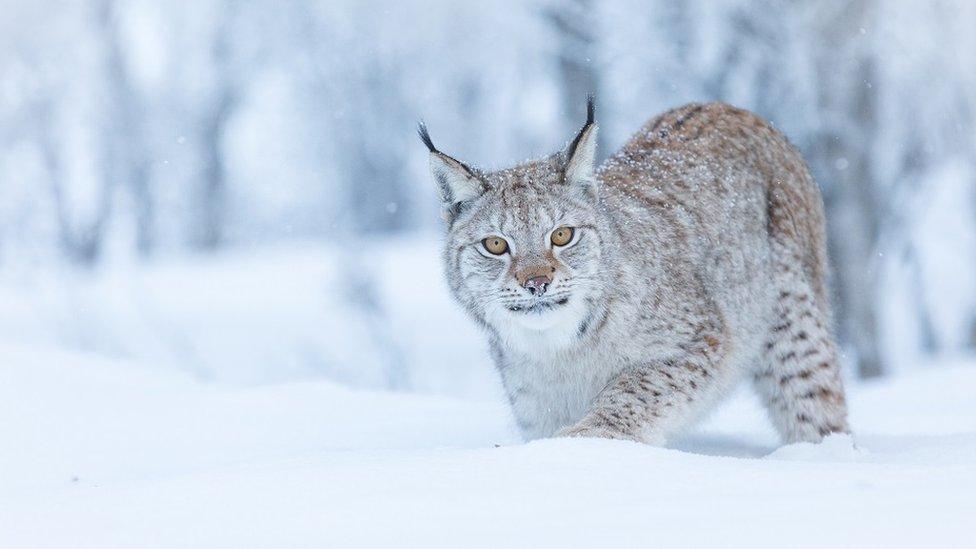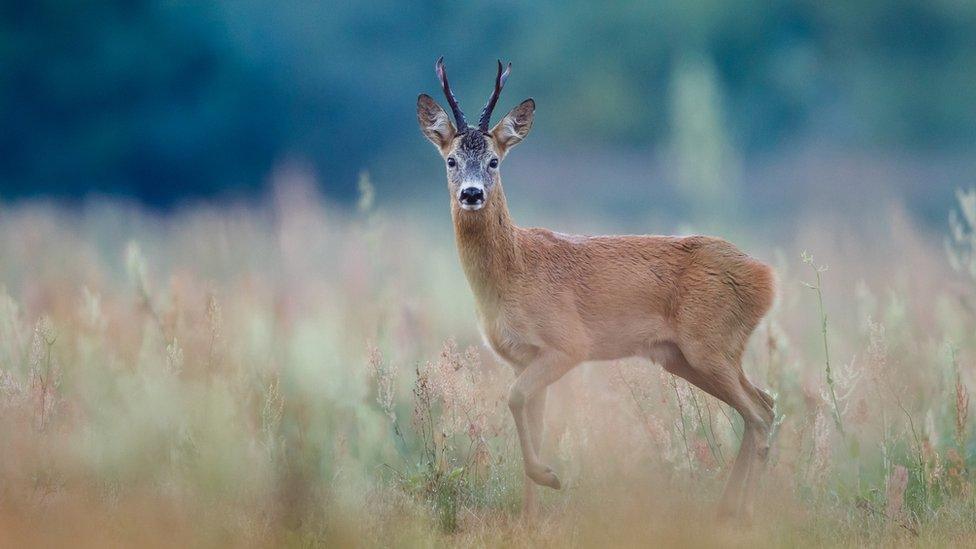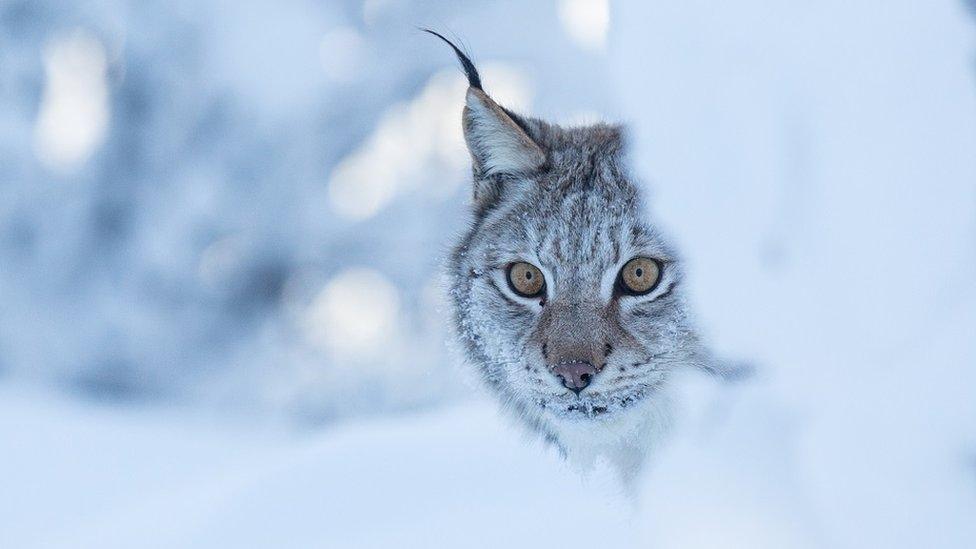Into the wild: Could lynx be reintroduced to Scotland?
- Published

Hunting and habitat loss wiped out lynx in Britain between 500 and 1,000 years ago
Hundreds of years after the last lynx died out in Britain, people in Scotland are being asked about whether the cats should be reintroduced.
Eurasian lynx are the third largest predator in continental Europe after the brown bear and wolf. Their main prey are roe deer - a small deer that favours woodland.
Lynx were once native to Britain but were driven to extinction 500 to 1,000 years ago due to hunting and habitat loss.
Three charities - Scotland: The Big Picture, Trees for Life and Vincent Wildlife Trust - have come together to look into the potential of releasing lynx into the wild in Scotland.
'Wholly unacceptable'
Last month the charities began a year-long "extensive and impartial" study to explore public attitudes to the idea, and to investigate the barriers to returning the animals to parts of the Cairngorms and Argyll.
The study, Lynx to Scotland, external, will include consultation with rural communities and is separate from other lynx reintroduction projects.
There are strong critics of the idea, with the National Farmers Union Scotland (NFUS) saying a return of the predator would be "wholly unacceptable" to its members.

Roe deer are the main prey of lynx
The three charities believe there are sound ecological reasons for bringing back lynx, an animal they describe as a "shy and solitary" woodland hunter, rarely glimpsed and not known to attack humans.
They said previous research suggested the Scottish Highlands had sufficient habitat - and more than enough roe deer - to support about 400 wild lynx.
Steve Micklewright, chief executive of Findhorn-based Trees for Life, said Scotland had more roe deer than any other European country. He said lynx could help control deer numbers in areas where their feeding harmed natural woodland regeneration.
He said: "By preying on roe deer, lynx would restore ecological processes that have been missing for centuries, and provide a free and efficient deer management service."
'Meaningful conclusions'
Herefordshire-based Vincent Wildlife Trust is leading the study.
Jenny MacPherson, science and research programme manager at the trust, said: "Reintroducing lynx would inevitably bring challenges."
She said the study would seek a range of perspectives to obtain "meaningful conclusions" about the level of support or tolerance for lynx, and the likely success of any future reintroduction.
Peter Cairns, of Scotland: The Big Picture, said predators like lynx played a key part in healthy natural environments.
He said: "With a global biodiversity crisis, we have a responsibility to have open and constructive conversations around restoring key native species to the Scottish landscape - and science shows that apex predators like lynx play a vital ecological role in maintaining healthy living systems."
Lynx have been reintroduced to other parts of Europe, including Germany's Harz National Park in 2000.
Ole Anders, who works on a project managing the park's small lynx population, said there had been discussions and debates about releasing the cats in the Harz mountains since the 1970s.
He told BBC Scotland's The Nine initial fears about their reintroduction had included lynx attacks on people and livestock.
Mr Anders said no-one had been put risk by the animals, and farmers were compensated for the few livestock losses seen.
He said: "Forestry is the most important business (in the park) and there is not much farming, which is something of an advantage to introducing a large carnivore like the Eurasian lynx."
Mr Anders said some tourism businesses in the park had embraced the lynx and used images on their promotional material.

NFUS is strongly opposed to the reintroduction of lynx
But NFUS is strongly opposed to the reintroduction.
It said an NFUS study trip to Norway in 2017 heard that Norwegian authorities paid out compensation on 20,000 sheep lost to predators, with lynx accounting for 21% of the losses.
NFUS vice president, Martin Kennedy, said predation of livestock in Norway had been declining, but only because of the numbers of farmers who had given up stocking sheep.
Mr Kennedy, a hill farmer from Highland Perthshire, added: "The Norwegians told us that to reintroduce predators into our country would be an absolute catastrophe.
"Their experience has simply strengthened our resolve."
Angus MacFadyen, NFUS environment and land use committee chairman, said: "NFU Scotland remains crystal clear that any proposals to re-introduce predators such as lynx are wholly unacceptable to Scottish farmers and crofters.
"The past three to four years have seen a long line of brazen and presumptuous claims from organisations about the imminent reintroduction of lynx to the UK."
The Scottish government has no plans to reintroduce lynx, external.
The Lynx to Scotland study will run until February next year.